AI is becoming a bigger part of the music industry day by day 一 so, whether you’re on board with it or not, it’s here to stay.
And as producers, learning to take advantage of AI can completely change the game for you (without losing your own unique style, of course).
By doing so, you’ll be able to generate music that’s more creative and unique at a much faster pace, that’s for sure.
You’ll be able to stay competitive, even as more music creators and artists lean into AI music production.
That’s why I’m breaking down everything you need to know to become an AI beat-maker, like:
- Generate songs & tracks in just a few clicks ✓
- Create high-quality music without advanced theory ✓
- Mix and match melodies, loops, and drums fast ✓
- Royalty-free audio for YouTube, Apple Music & more ✓
- Make original beats in multiple genres ✓
- Add signature sound FX chains without manual routing ✓
- Download professional songs for commercial use ✓
- Eliminate copyright strikes with AI-generated music ✓
- Create unique beats for podcasts, videos & ads ✓
- How to start creating AI music that actually stands out ✓
- Use Ethical AI music generators to boost your creativity ✓
- Much more to help you become an AI beat-maker ✓
After today’s article, you’ll know everything about creating beats with AI so your tracks sound more professional and on point.
This way you can use AI beat-making tools for different styles, vibes, and genres (like hip-hop, EDM, or trap) like an absolute boss.
You won’t have to worry about guesswork, wasting precious time, or falling behind in this super fast-pace industry.
Table of Contents
- Techniques for Becoming an AI Beat-Maker
- 1. Using MIDI Wizard 2.0 for AI Chord Progressions
- 2. Creating Epic Drum Loops with Drum Monkey
- 3. Bassline Madness With Bass Dragon
- 4. Professional FX Chains with Sound Doctor
- 5. Applying Hybrid Distortion Effects with Mangler
- 6. Adding Lo-Fi Vibes with Zen Master
- 7. Hard-Hitting 808s with 808 Machine
- 8. Generating AI Chord Progressions with Chord Genie (The Newest AI Music Generator)
- 9. Experimenting with Multiple AI Beat-making Tools Together
- 10. Training Your Ear Using AI Suggestions
- 11. Remixing Your Own Beats with AI
- 12. Letting AI Handle the First 10% (High-quality Music Creation)
- 13. Reversing AI Beats for Creative Inspiration
- 14. Creating Signature Sounds with AI + Resampling
- 15. Saving Time on Layering & Arrangement
- 16. Mixing Multiple Genres with AI
- 17. Mastering Different Effects with AI To Create Music That Pops
- 18. Using AI Loops to Build Sample-Based Beats
- 19. Using AI Presets
- 20. Stacking AI-Generated Layers for Sonic Complexity
- 21. Using AI to Create Unique Beats from Scratch
- Final Thoughts
Techniques for Becoming an AI Beat-Maker
Before we dive in, just know this: AI beat-making isn’t about replacing your creativity — it’s about supercharging it. Once you get the hang of how these AI beat-maker tools work, it will become second nature to generate music that’s not only fast, but actually sounds professional and matches your unique style. So, let’s get into it.
1. Using MIDI Wizard 2.0 for AI Chord Progressions
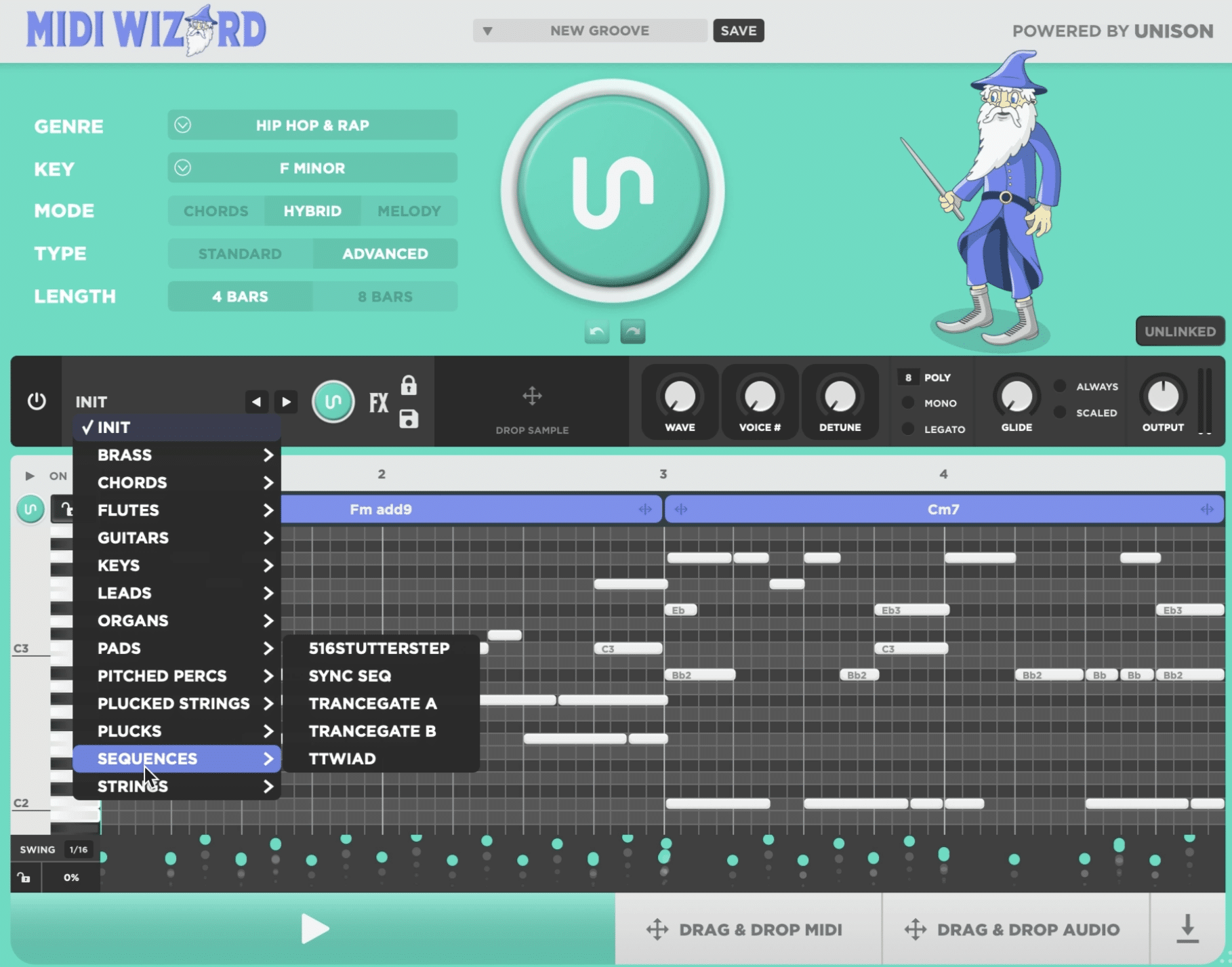
MIDI Wizard 2.0 instantly generates full MIDI chord progressions and melodies for multiple genres like hip-hop, EDM, R&B, and trap 一 32 to be exact.
Just select your key, genre, and mood, and then hit generate (yes, it’s really that easy).
You can tweak the complexity slider, and it gives you multiple layered ideas with perfect timing and clean voicings that can be dragged straight into your piano roll.
Each clip typically spans 4–8 bars and stays within the selected key, with chord types ranging from triads to complex 7ths and 9ths depending on your complexity setting.
I usually set it around 65–75% for a good balance of musicality and unpredictability, but it’s dealer’s choice.
Once inside your DAW, you can transpose chords up or down, stretch the progression to fit your track’s tempo, or split the voicings to different instruments for layering.
It’s one of the most powerful AI beat-maker tools for fast inspiration and royalty-free content, hands down.
This specific AI music generator is absolutely perfect when you need inspiration, are suffering from beat block, or want to build a track from scratch without wasting hours.
2. Creating Epic Drum Loops with Drum Monkey
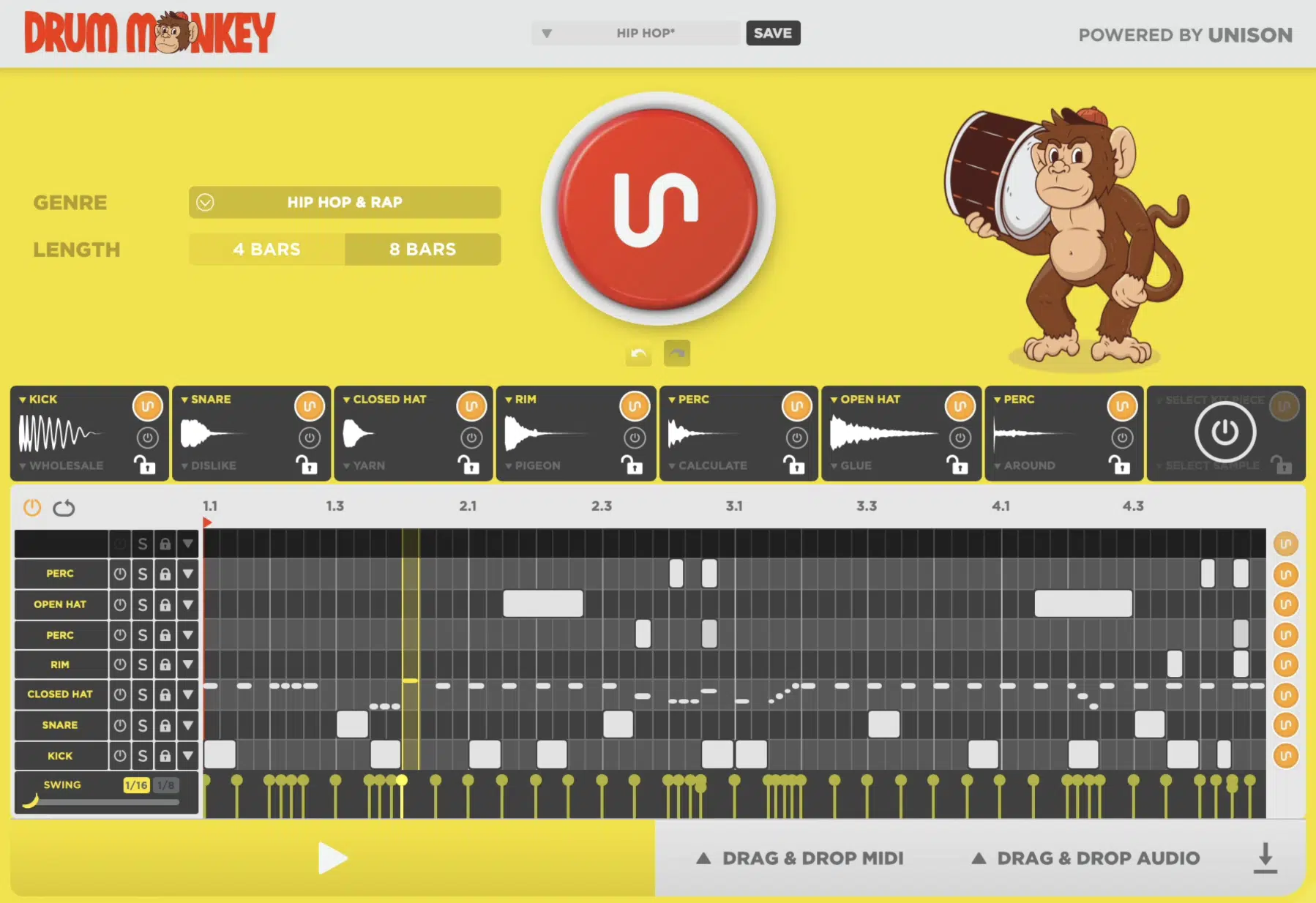
Drum Monkey is a powerful AI music generator designed to generate full drum loops (including kicks, snares, hi-hats, and percussion) all in just a few clicks.
It offers genre-specific patterns across over 30 styles, and lets you mess around with customization parameters like:
- Swing (1/8 or 1/16)
- Velocity variation
- Humanization
This way, you can easily add a natural feel to your beats so they feel like you.
Each loop can be exported as individual stems in both MIDI and WAV formats for flexibility so you can edit away in your DAW later if you want.
With over 3,000 high-quality samples and the ability to import your own, Drum Monkey ensures that every loop you create is royalty-free and ready for commercial use.
Whether it’s for YouTube videos, streaming services (e.g., Spotify, Apple Music, etc.), or even background music for podcasts, Drum Monkey’s got your back all day.
Side note, if you want to learn everything about this legendary AI drum generator, I got you.
3. Bassline Madness With Bass Dragon
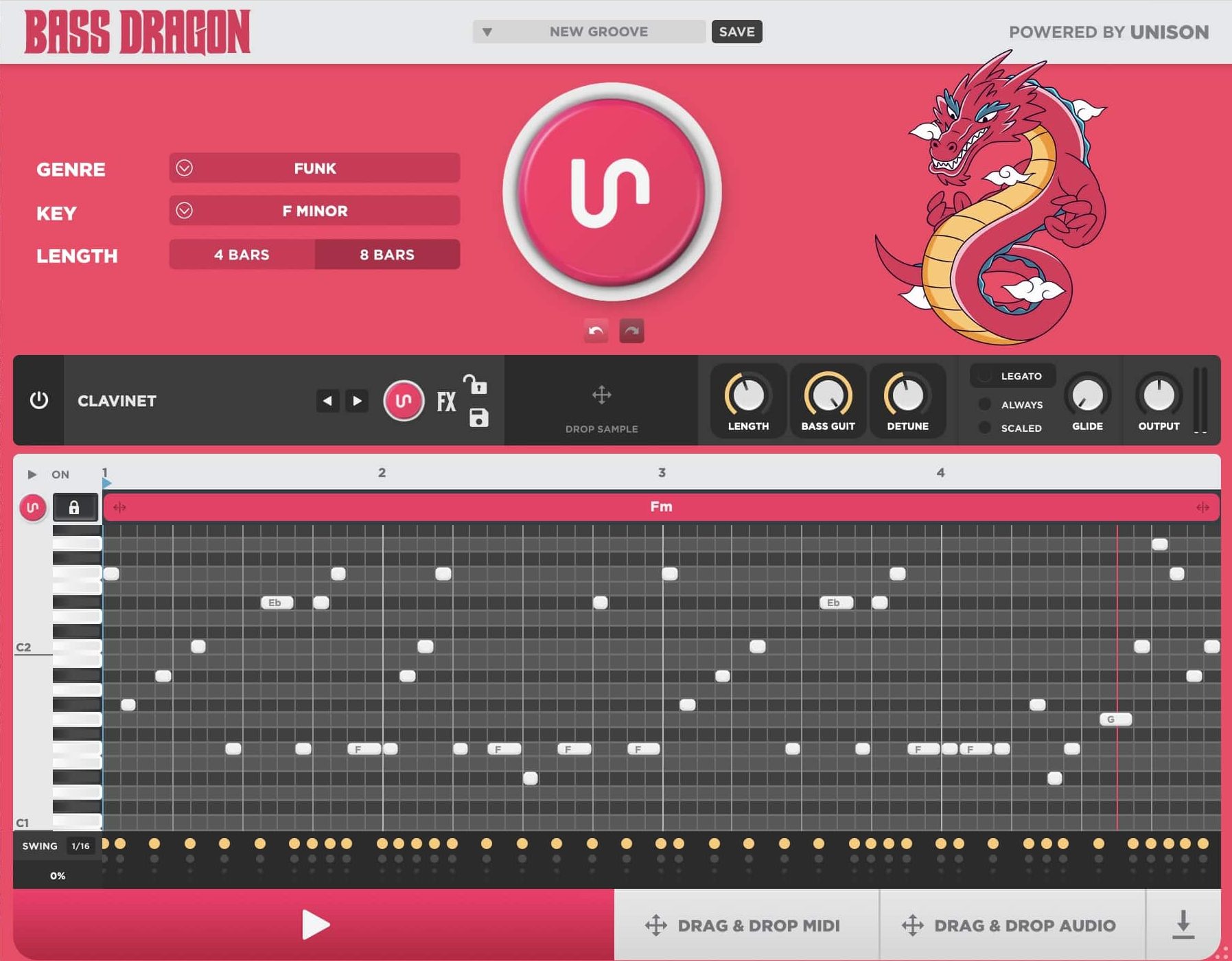
Bass Dragon uses key and scale detection to instantly generate genre-based basslines that match your chord progressions without clashing or sounding off.
Its intuitive interface lets you select your desired genre and mood so you can knock out epic basslines that hit right every single time.
For example, when creating a hip-hop beat in A minor, you can choose a “dark” mood to generate a bassline that adds depth and intensity to your composition.
It also offers various controls 一 including a Sub Boost knob to enhance low-end frequencies, a Drive control for adding saturation, and Shape and Tone settings to fine-tune the harmonic content.
These features make Bass Dragon a key tool for AI beat-makers aiming to create impactful basslines in seconds.
4. Professional FX Chains with Sound Doctor
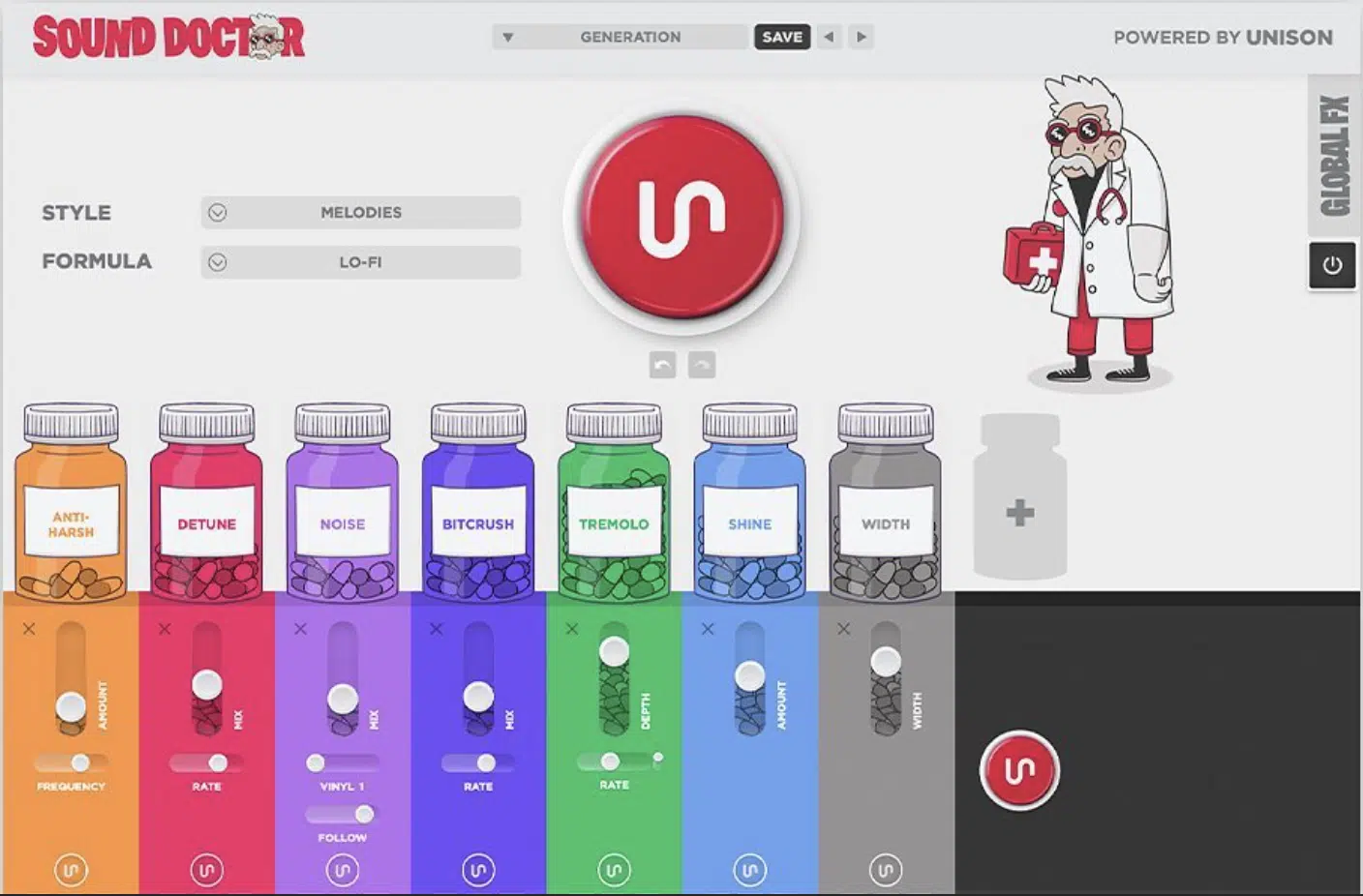
Sound Doctor is an AI-powered FX generator that analyzes your sound and instantly gives you pro-level effect chains tweaked to your selected style.
Whether you’re working on dark trap, ambient beats, or club bangers, it’s easy as pie.
You can stack up to five effect modules, like Reverb, Delay, Chorus, and Multiband Compression 一 with smart parameter settings already dialed.
This way, you don’t waste time guessing what sounds right.
One of my go-to setups is using a Dreamy FX chain for background music pads and then switching to a Punchy chain when layering vocals.
Bottom line, it speeds up AI beat-making and keeps your songs polished right from the jump so you never have to worry about it sounding basic or whack.
5. Applying Hybrid Distortion Effects with Mangler
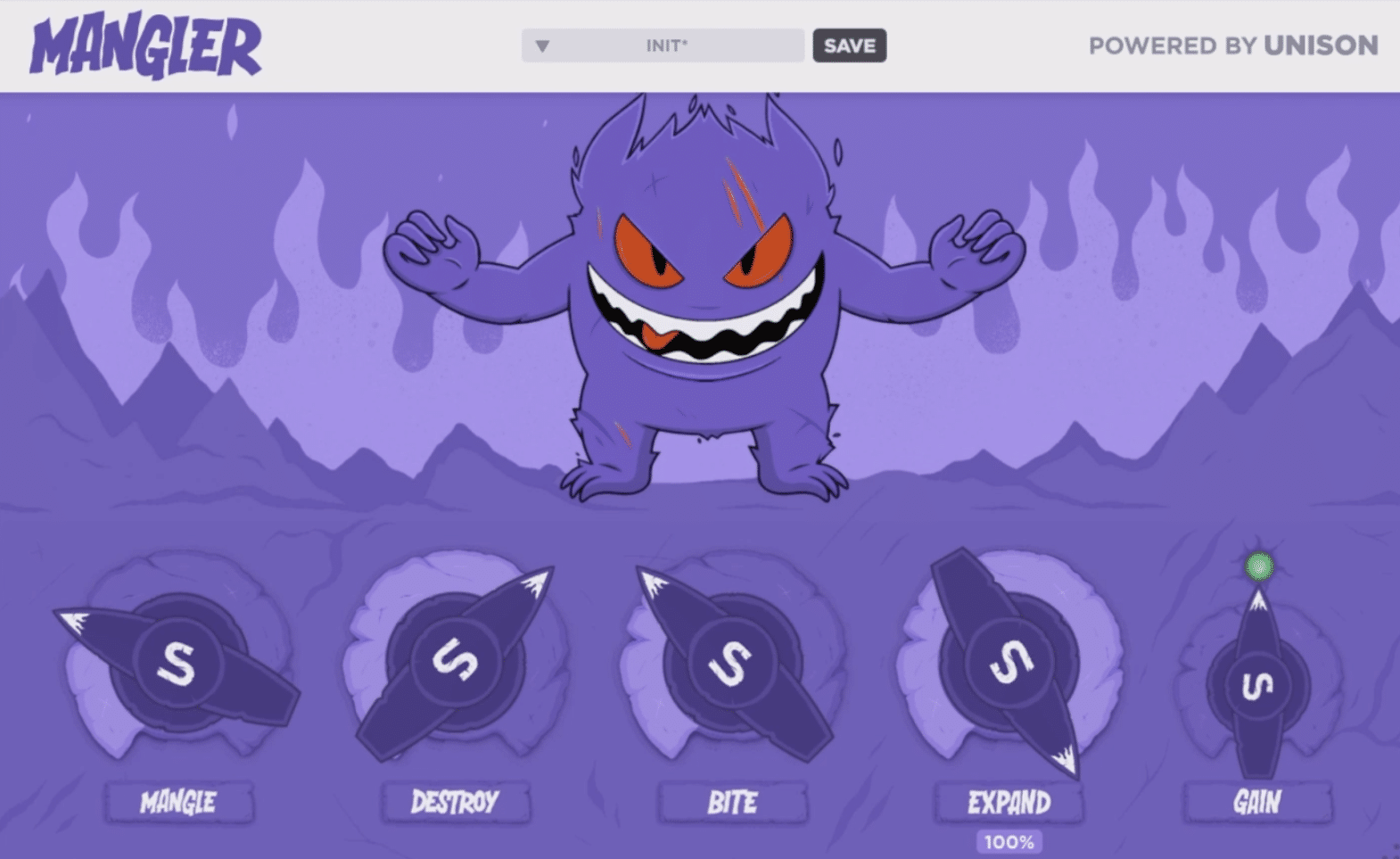
Mangler offers a unique blend of analog and digital distortion effects which are perfect for AI beat-makers looking to shape their sound like a boss.
It features four main controls:
- Mangle (hybrid distortion and compression)
- Destroy (aggressive analog distortion)
- Bite (bitcrushing)
- Expand (stereo width enhancement)
For example, you can set the Destroy knob to 70% and add gritty texture to 808s, while using Bite at 30% introduces a lo-fi character to melodies.
Side note, adjusting the Expand control can widen the stereo image, making your beats sound more immersive, so definitely try that out as well.
All-in-all, Mangler is an invaluable asset for adding depth and character to your tracks and will help you add some much-needed edge.
6. Adding Lo-Fi Vibes with Zen Master
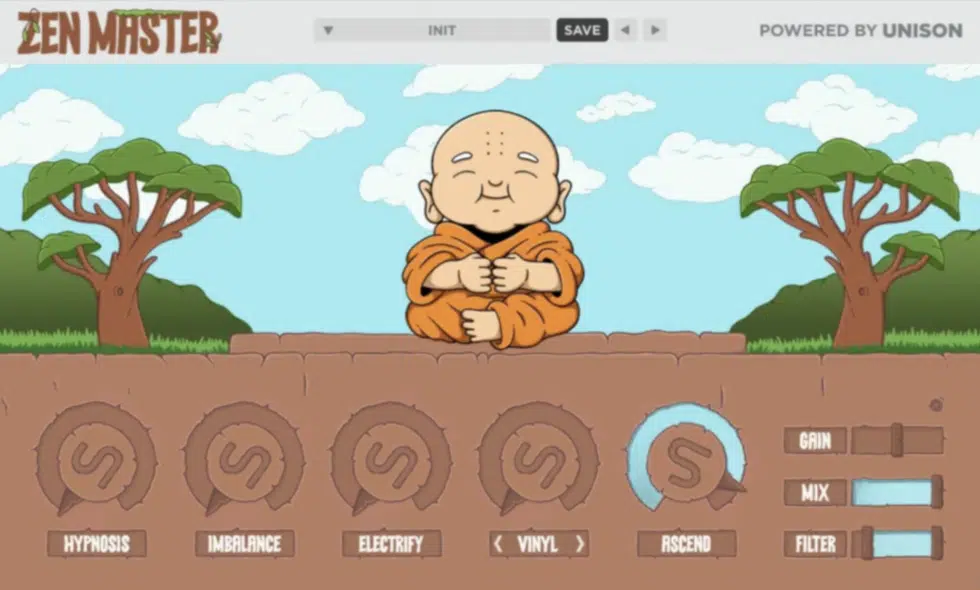
Zen Master gives you five unique controls (Hypnosis, Imbalance, Electrify, Vinyl, and Ascend) that are perfect for creating buttery lo-fi textures in just seconds.
One of my favorite combos is using Vinyl at 60%, Imbalance at 35%, and a touch of Hypnosis at 25% on clean piano loops to instantly make them sound sampled from a vintage cassette.
It’s one of those AI beat-making plugins that helps create unique beats with a nostalgic, emotional feel.
NOTE: It also includes a Mix slider for blending the processed and unprocessed signals and a Filter slider for sculpting the frequency range.
Zen Master is essential for AI beat-makers aiming to create unique beats with a vintage vibe (I mean, it’s making major waves in the industry for good reason!).
7. Hard-Hitting 808s with 808 Machine
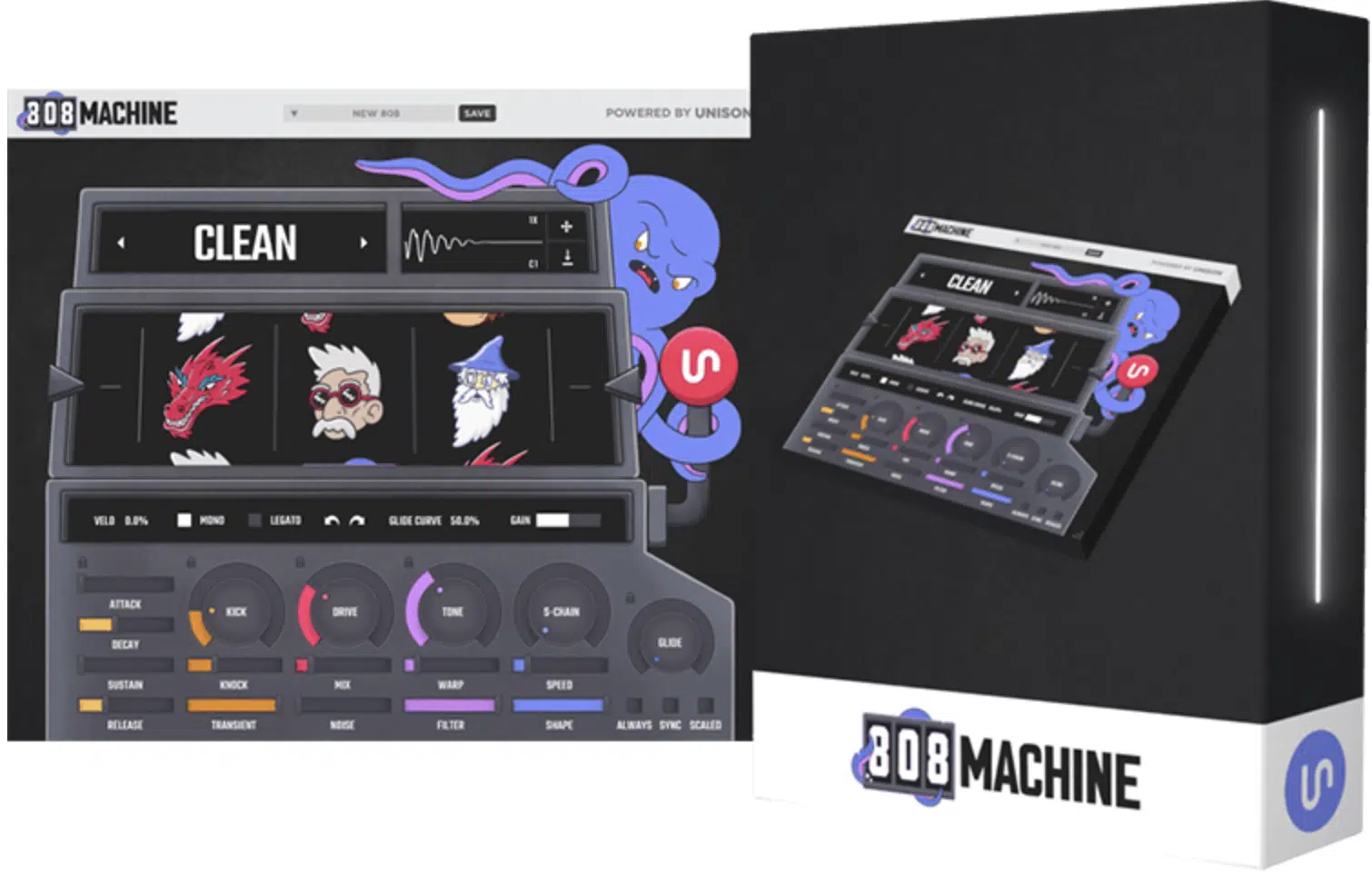
808 Machine is an AI-driven beast that generates clean, heavy, and fully customizable 808s with controls for Pitch, Glide, Tone, Distortion, and Length all in one place.
For example, try setting the distortion to 70%, pitch around -12 semitones, and length to 30% for short, punchy hits that slam in the low-end without muddying the mix.
You can generate infinite variations, drop them into your songs royalty-free, and layer them with AI melodies or loops for beats that hit hard on every system.
8. Generating AI Chord Progressions with Chord Genie (The Newest AI Music Generator)
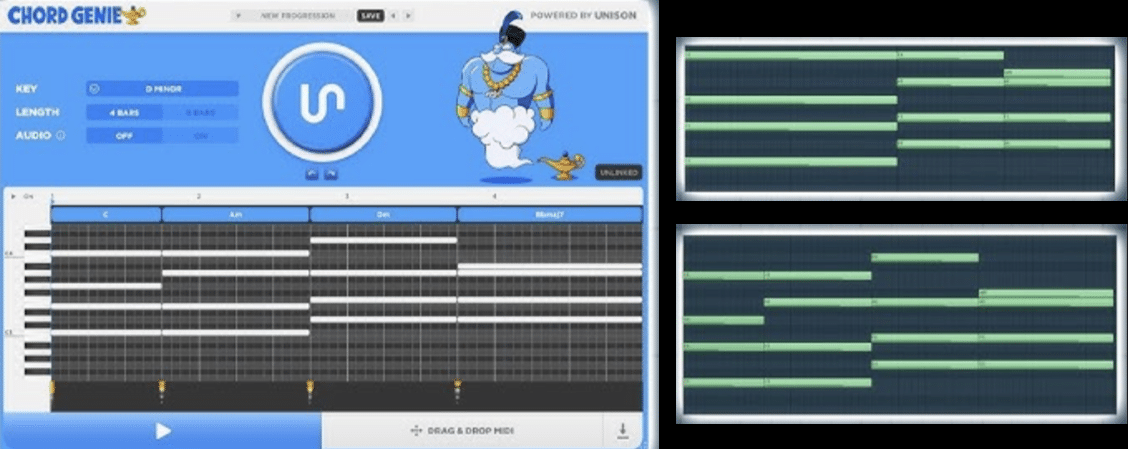
Chord Genie is the latest AI music generator in the game, building full, genre-based chord progressions using advanced AI modeling trained on over 100,000 charting songs.
You can select the genre, choose the emotion (like sad, dark, happy, or epic), and hit generate, and then boom…
You’ll get a MIDI chord progression in your chosen key with a perfect sense of movement and harmonic tension.
I recommend downloading 3–4 variations, dragging them into your session, then using one for the verse, one for the hook, and one for the bridge.
This way your AI beat-making process feels seamless while still giving your songs structure and dynamics.
9. Experimenting with Multiple AI Beat-making Tools Together
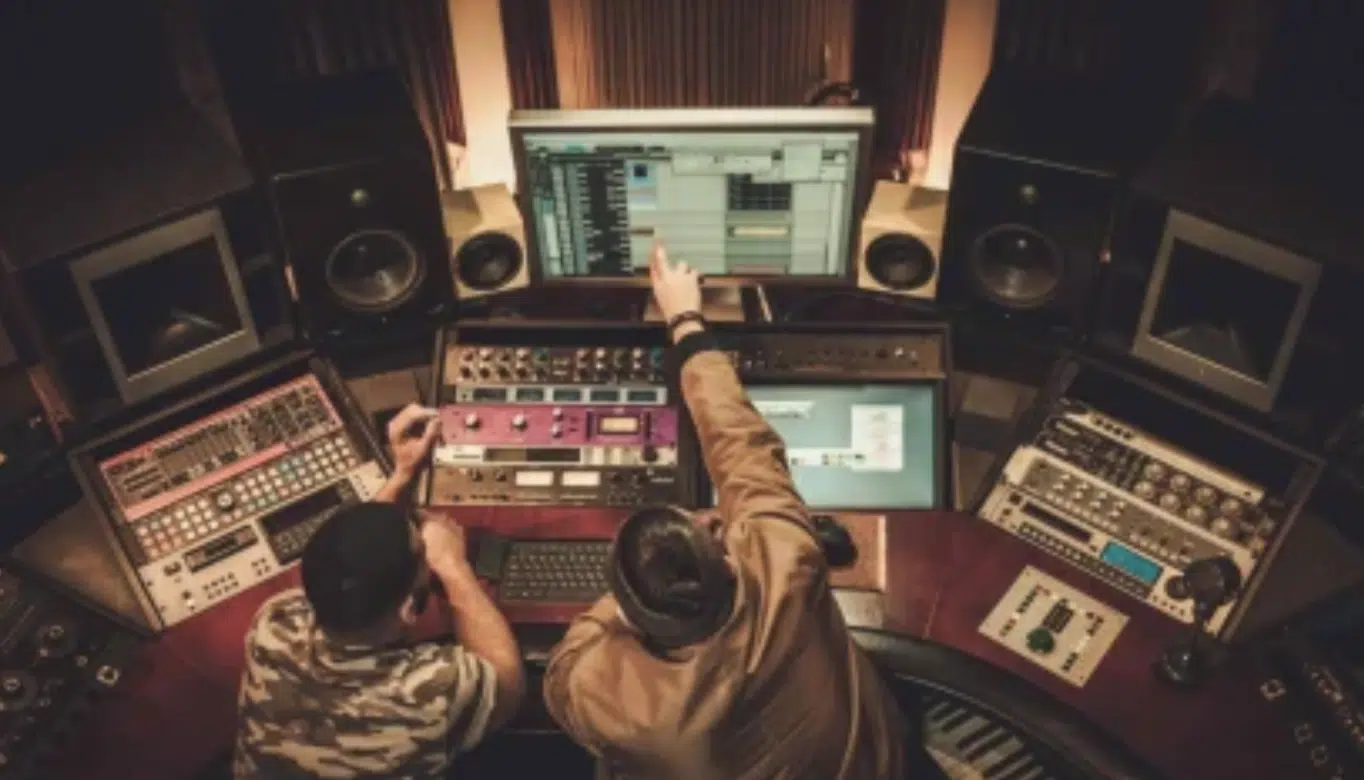
When you combine multiple AI beat-making tools, you can build layered, polished tracks without wasting time bouncing between plugins.
For example, generate a chord progression with one AI plugin in G minor and create a matching bassline with another using the same root note.
Then, toss in a melody from a different generator and pitch it up 3 semitones to sit in the pocket perfectly.
PRO TIP: Export each generated stem, label them clearly by key and tempo (e.g., “Gmin_90BPM_PluckMel”), and stack them visually in your DAW.
It’ll keep your session tight and helps you mix genres like hip-hop, ambient, and lo-fi without ever clashing or sounding off.
10. Training Your Ear Using AI Suggestions
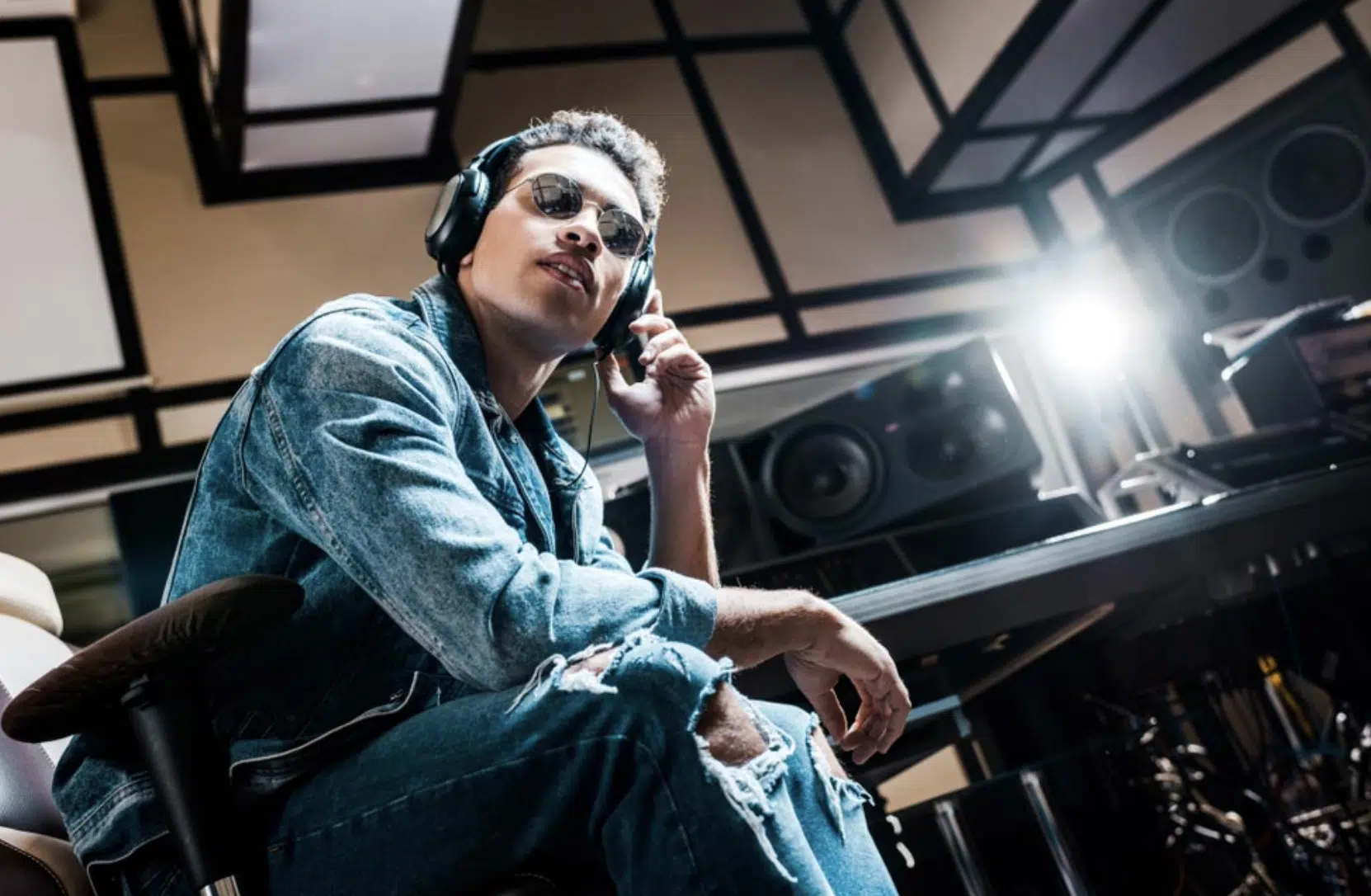
As an AI beat-maker, one of the smartest things you can do is treat AI-generated music like a learning tool.
So, I suggest that you try to generate 5–6 chord progressions in different keys and challenge yourself to identify the:
- Key
- Root movement
- Emotional tone by ear
Then you can check the actual settings to see how close you are, and keep doing that until you become a master at it (super beneficial).
For example, if an AI progression in D minor includes an unexpected G major chord, figure out how that secondary dominant affects the overall vibe.
Then, recreate it in a different tempo or context, like a slow 70 BPM trap beat or a fast 125 BPM house loop.
Over time, this kind of ear training improves your internal sense of melodic tension, helps you write better lyrics to match your chord movements, and makes you a more intuitive AI music creator in general.
Even if you’re still relying on AI music generators to build your beats/AI music tracks, your skills will seriously be enhanced, which is always a plus.
11. Remixing Your Own Beats with AI
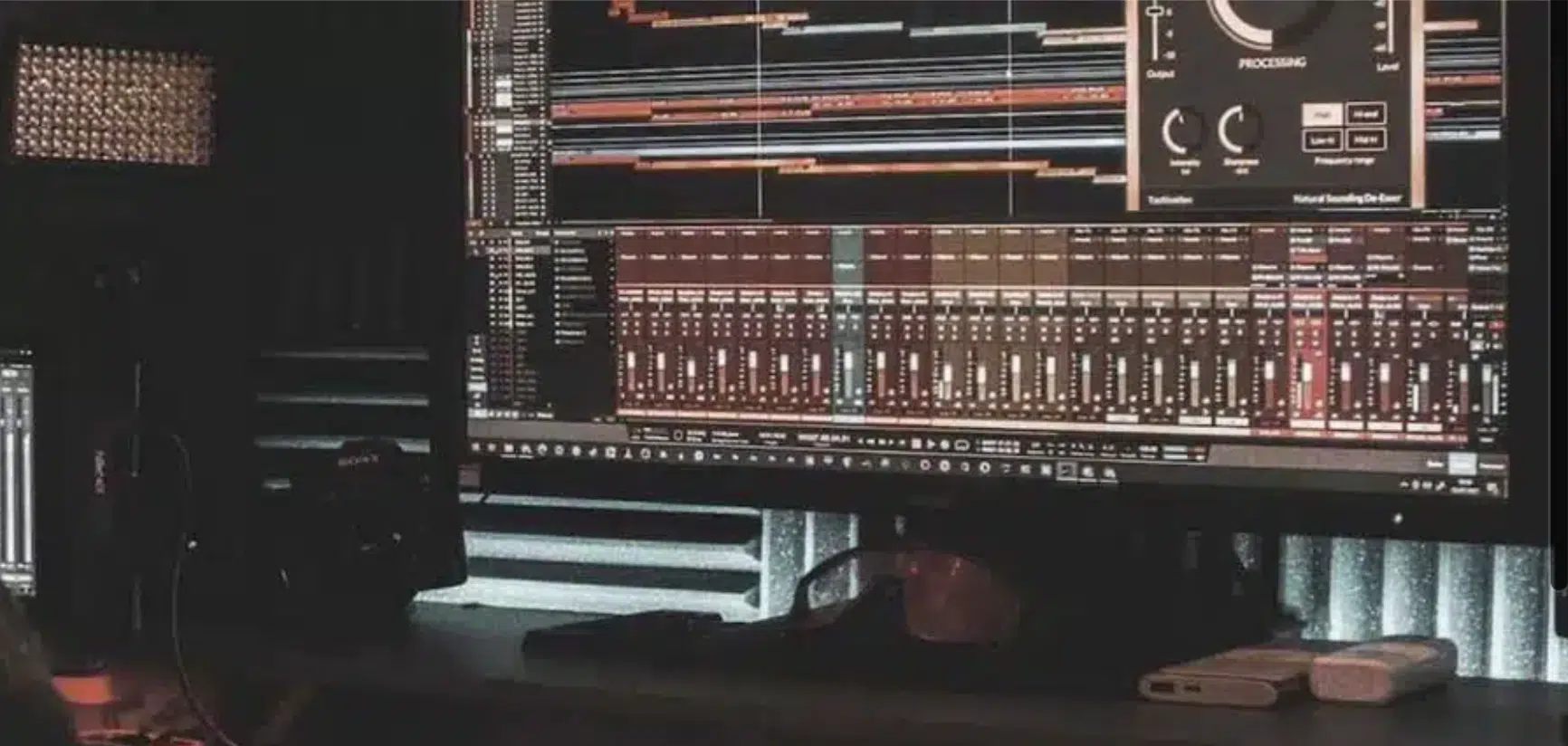
Drop one of your old beats into an AI stem separator to extract the drums, melody, and bass, then regenerate each layer individually using different plugins to modernize the sound.
For example, you can keep the original tempo at 82 BPM and switch the scale from D minor to B Phrygian.
Then, add an AI-generated melody with reversed tails and gated delay at 45% mix.
This will make your unique remix feel intentional, not just random repackaging (and you’ll enhance your creativity altogether).
12. Letting AI Handle the First 10% (High-quality Music Creation)

AI beat-making is perfect for eliminating the “blank project” phase all day.
Just set your BPM to something like 140 for trap, select a dark synth preset, and let an AI music generator lay down your starting progression or melody in under 60 seconds.
Once that foundation is there, you can focus on dialing in the sound, layering textures, and adjusting the tempo ±5 BPM to get the right bounce.
It will transform your process into high-quality music creation without getting stuck at square one.
13. Reversing AI Beats for Creative Inspiration
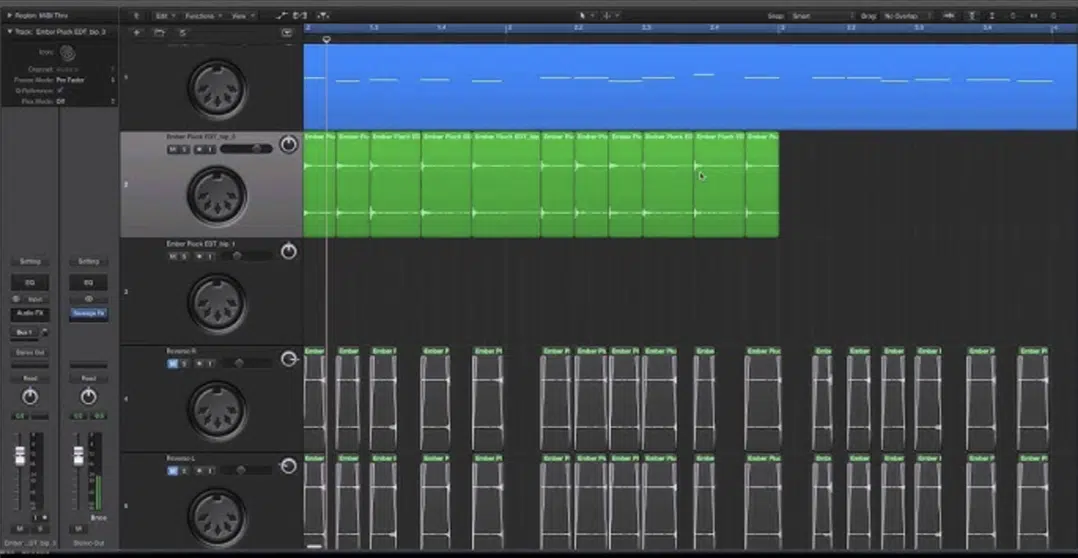
Reversing beats for creative inspiration is one of the best ways of using AI in my opinion 一 take any AI-generated melody, loop, or entire track and reverse it.
Then, chop it into 4-bar segments and rearrange the slices using a simple 1/8 grid quantization to create something entirely new.
What you’ll want to do next is pitch it down by 3 semitones and add a 45% wet reverb with a 2.1s decay.
You’ll end up with a completely different vibe, ideal for ambient intros, background music for videos, or royalty-free sample packs.
14. Creating Signature Sounds with AI + Resampling

One of the smartest ways to create unique beats in the world is to take a generated loop, bounce it to audio, then resample it using:
- Pitch-shifting
- Time-stretching
- Granular slicing
This is an art though, so make sure to practice 一 that’s the key.
For example, take a piano loop, shift it down -5 semitones, apply a 30% wet tape delay, then slice it into 1/16ths using your DAW’s transient detection.
Now it will sound nothing like the original but still carries the emotional DNA.
Add a filter sweep from 12kHz to 4kHz over 8 bars, automate a subtle chorus at 28% mix, and now you’ve got a signature sound no one else can replicate.
One that still started with AI beat-making at its core, of course.
And when you repeat this process on the regular, it will help you develop your signature sound and really stand out in a sea of recycled, basic beats.
15. Saving Time on Layering & Arrangement
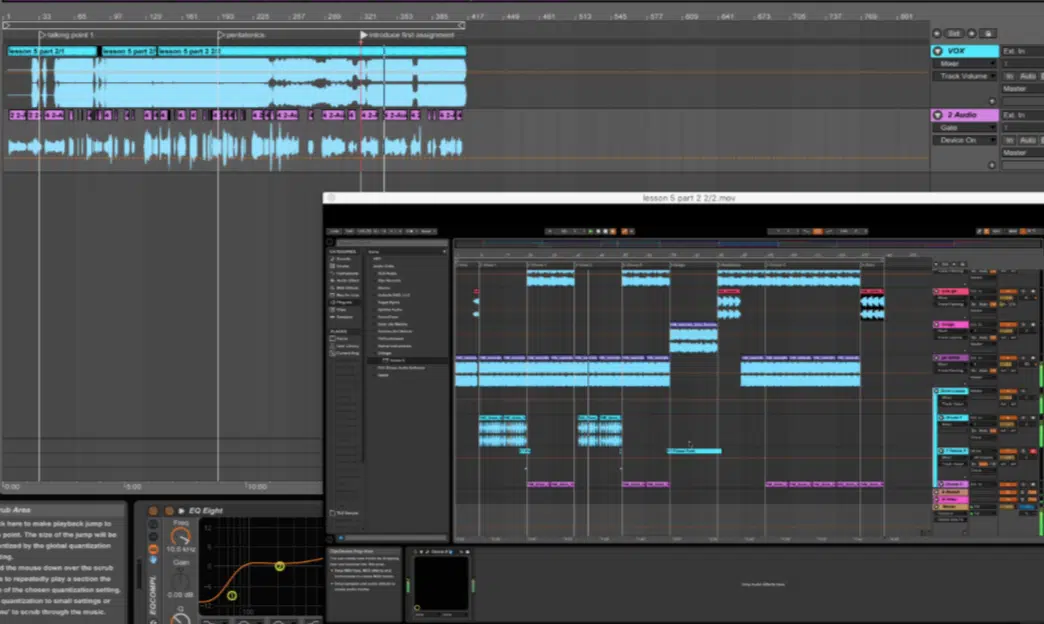
As an AI beat-maker, another one of the biggest time-savers is generating 4-6 distinct melodic and percussive layers and stacking them into A/B sections.
You’ll want to do this using visual cue markers in your DAW.
For example, you can generate a hook melody, two drum loops, a bassline, and a couple top-line accents, then arrange them into a 32-bar loop using automation for things like reverb buildup (starting at 15% mix and peaking at 40% by bar 16).
Just don’t forget to use color-coded clips (e.g., red for drums, blue for melodies, yellow for FX) so you can visualize the dynamic flow.
As an AI beat-maker, it will make the arrangement process feel less like a puzzle and more like painting with sound.
16. Mixing Multiple Genres with AI
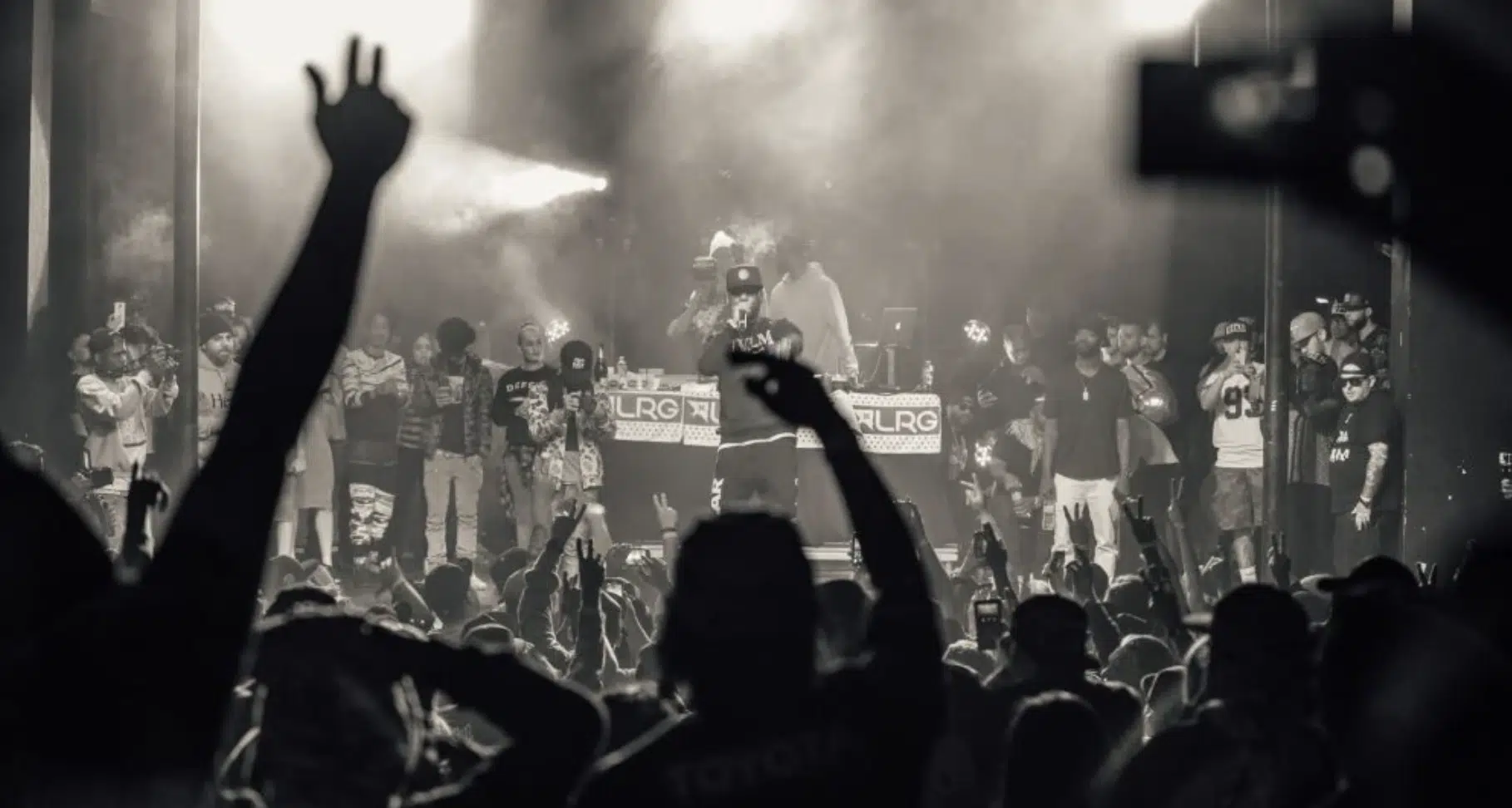
Using AI you can blend styles like boom bap with synthwave or UK drill with lo-fi by simply swapping instrument types or re-generating layers with new genre settings.
For example, generate a gritty 90 BPM hip-hop drum loop, then layer it under dreamy, AI-generated synth arps at 120 BPM using time-stretching with complex warp mode.
This way, you’ll create a cross-genre track that still grooves, hard.
And don’t be afraid to experiment as an AI beat-maker… Set your scale to D Dorian, use detuned pads with a 35% stereo spread, and let AI fill the gaps between otherwise harsh genre mixes.
17. Mastering Different Effects with AI To Create Music That Pops
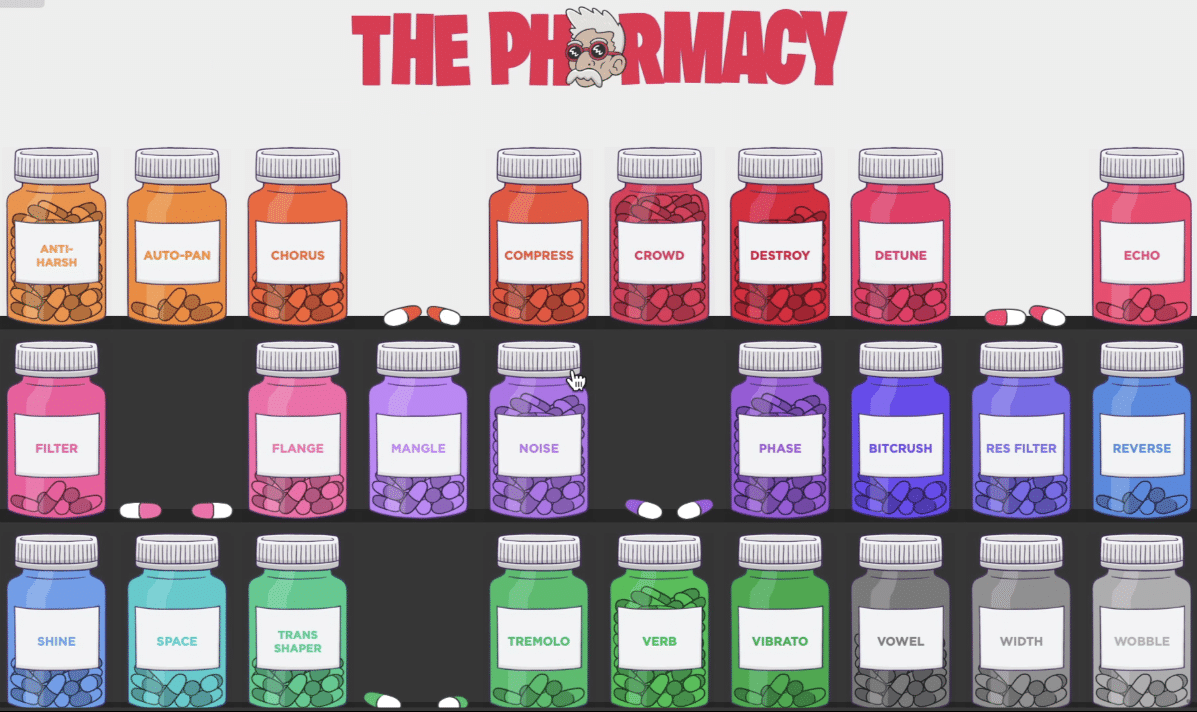
The right AI-generated FX suggestions can bring life to your mix, that’s a fact, and as an aspiring AI beat-maker, you have to be on top of those things.
For example, you can use saturation on the mids to add warmth, or multiband transient shaping to boost your drum clarity without affecting your vocals.
Set your saturation to hit just the 300Hz–2kHz range at 15% intensity, then compress only the high band of your track using a fast attack (3ms) and medium release (30ms) to control any harsh top-end.
If you’re dropping AI music tracks for YouTube, podcasts, or commercial use, this kind of targeted processing is invaluable.
It’ll help your music pop without relying on traditional long-winded mixing sessions, which is yet another perk as an AI beat-maker.
18. Using AI Loops to Build Sample-Based Beats
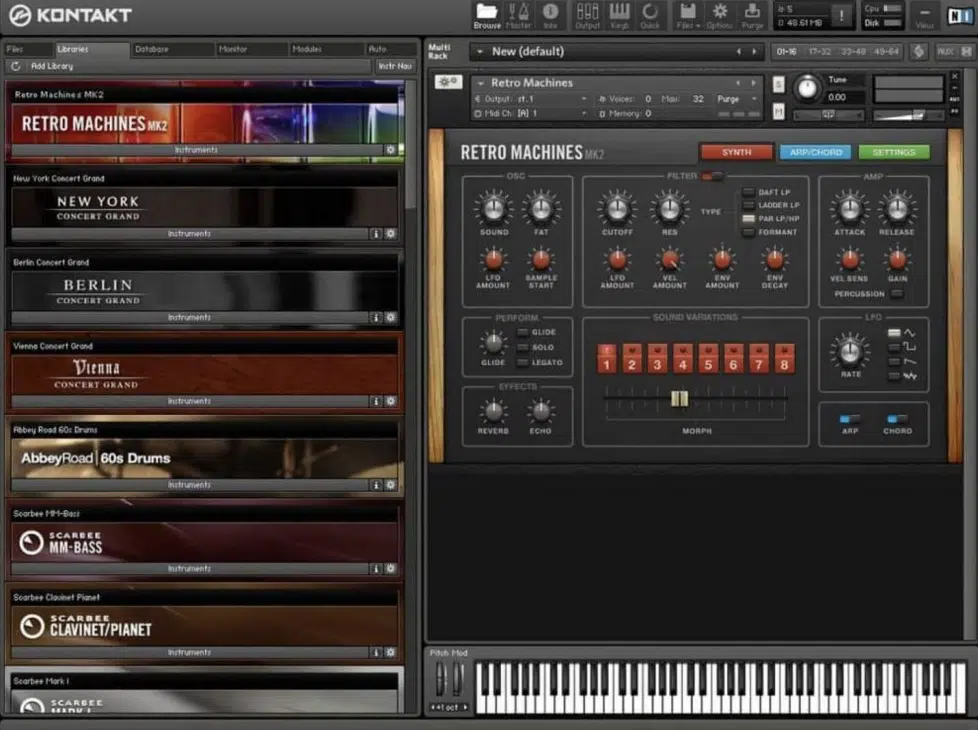
AI-generated loops are 100% royalty-free, which means you can slice them like vinyl.
So, try taking a 4-bar melody loop, chopping it into 1/8 notes using transient detection, and rearranging it MPC-style for a gritty, sample-based vibe.
As an AI beat-maker, you should try to use:
- Pitch shifting (-3 to +5 semitones)
- Stereo narrowing
- Lowpass filter at 1.2kHz with 12dB slope
This will help you recreate that dusty, sampled-from-tape character that hits hard in hip-hop and lo-fi.
Just don’t forget to change the tempo slightly (±5 BPM), layer in one-shots from a different loop, and add subtle vinyl noise at -24dB in the background.
This will give your track that underground edge as an AI beat-maker, while still keeping it 100% safe for commercial use, so you won’t have to worry about a thing.
19. Using AI Presets
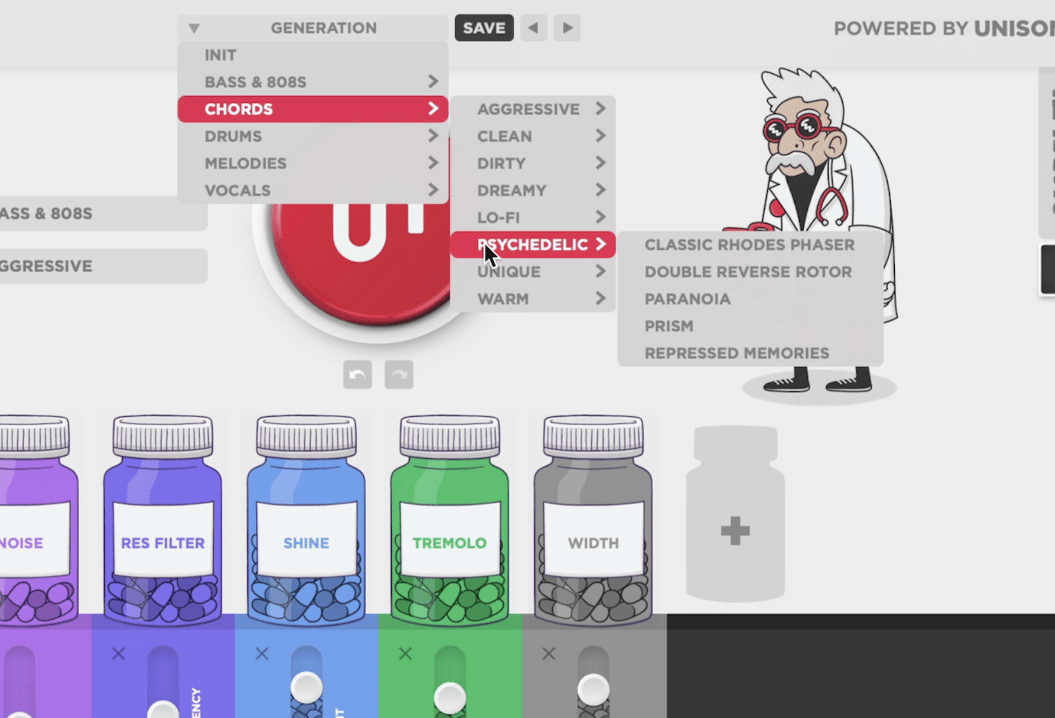
AI presets are often trained on genre-specific profiles to help you really knock it out of the park as an AI beat-maker, regardless of what vibe/style you’re going for.
For example, you might load a “Chill Trap Arp” that has pre-designed attack/release envelopes, velocity settings, and sync’d delay tails.
If you’re an AI beat-maker, I recommend saving your favorite presets with custom tweaks like detuning the pitch by -7 cents or setting the reverb decay to 1.9s with a 30% wet mix to personalize your sound while working super fast.
You can even layer presets by routing two instances of the same instrument to different frequency ranges 一 one handling lows under 300 Hz, the other for mids and highs).
This will give you a fuller, professional-sounding mix right out the gate.
20. Stacking AI-Generated Layers for Sonic Complexity
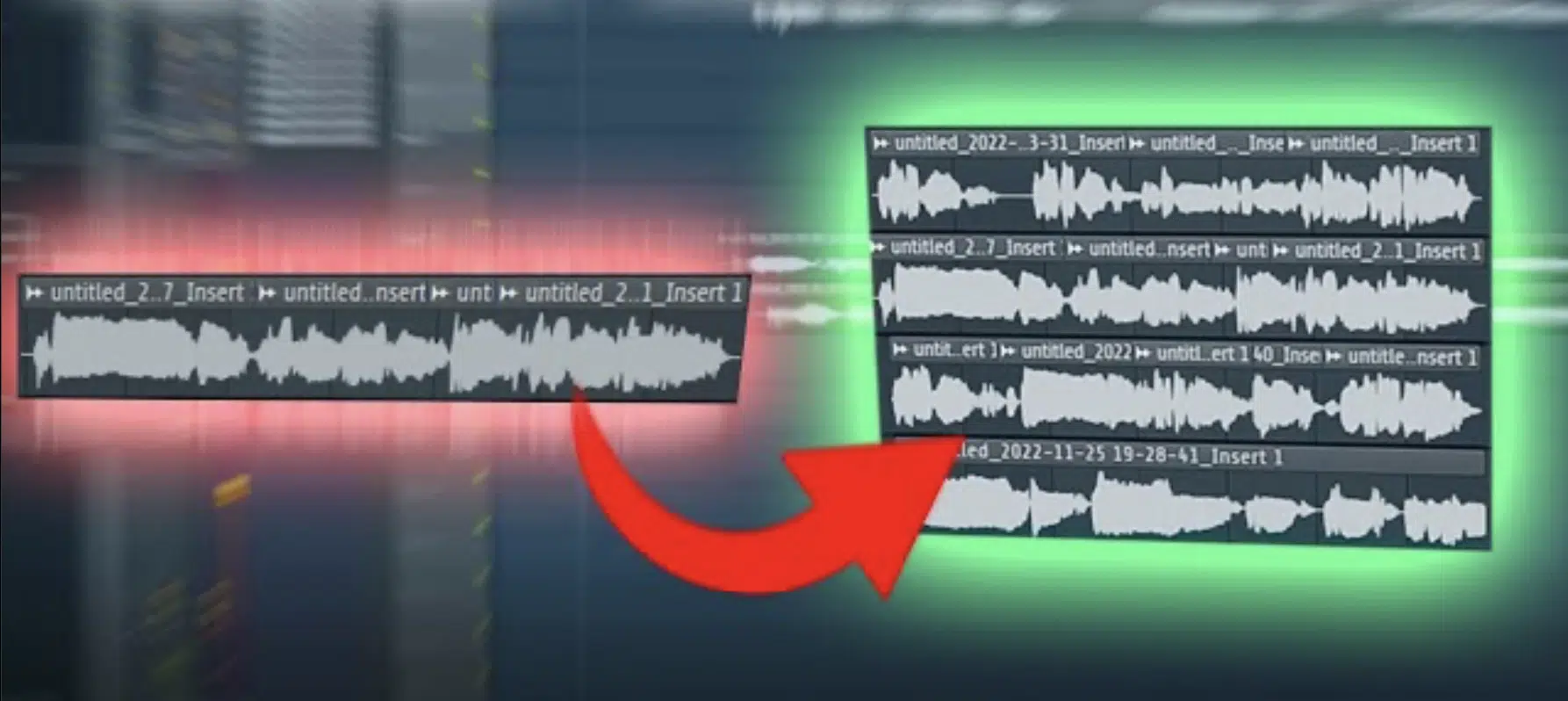
Instead of relying on just one loop, the best AI beat-makers (like you’ll be after using the tips from this article) will layer multiple AI-generated tracks and carve out their own frequency space using subtractive EQ and stereo placement.
For example, you can pair a synth pluck with a pad that’s been high-passed at 500Hz and pan the pluck 30% left and the pad 30% right.
Then, apply a 20ms delay on one side of the pad to create width without clashing frequencies, because nobody has time for that.
This technique works perfectly for background music in videos, podcasts, or any style or vibe where you want maximum depth and clarity.
Plus it’ll help you generate music that’s high-quality, detailed, layered, and entirely original 一 it doesn’t get better than that.
21. Using AI to Create Unique Beats from Scratch
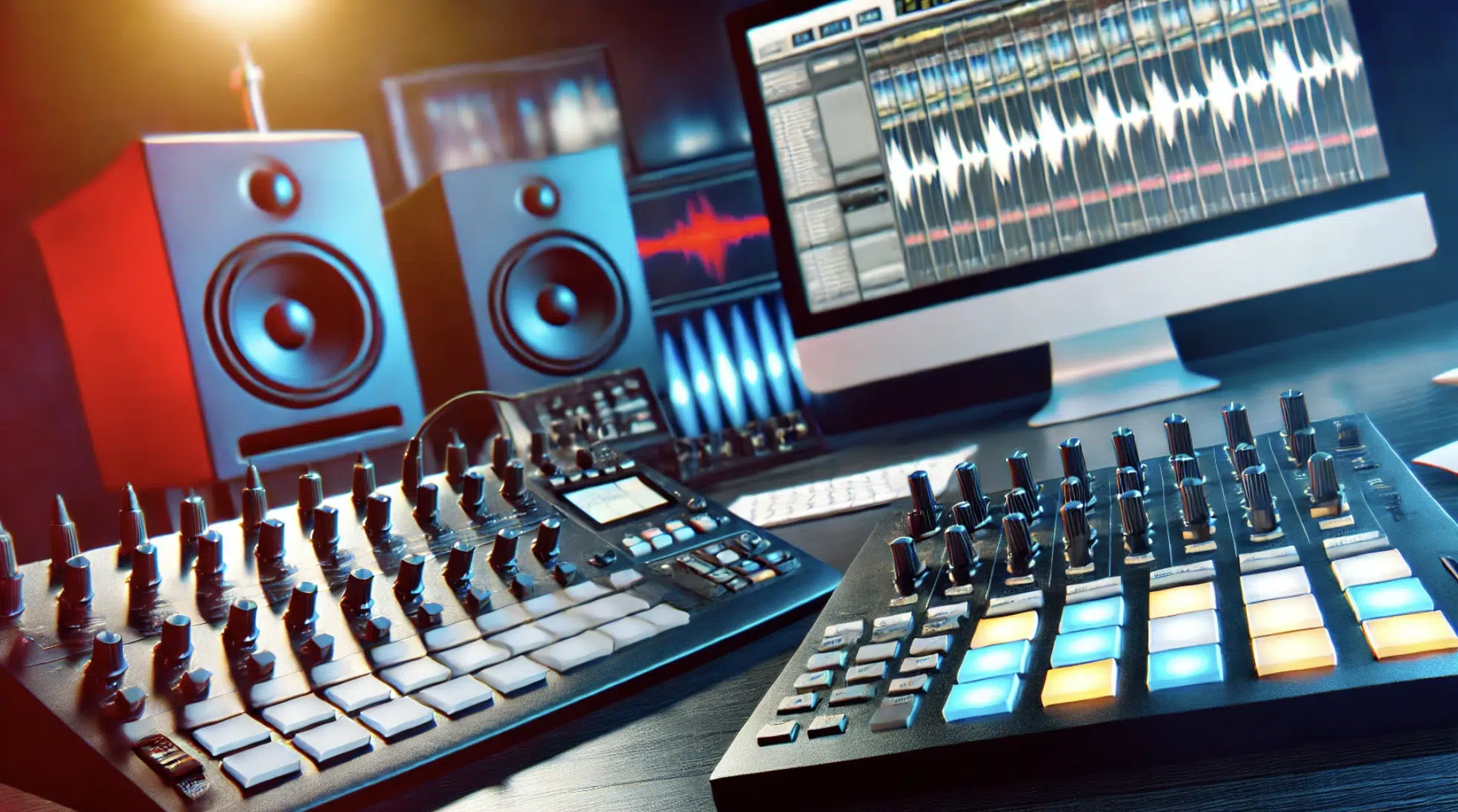
To create unique beats from scratch, start by generating 2–3 melodic loops, 1–2 basslines, and 3 drum variations using different AI tools.
Make sure they’re all in the same key and tempo, like C minor at 140 BPM, for example.
Once you’ve got your base, swap out individual drum hits 一 like replacing a generic snare with a layered clap + rim combo.
Then, bounce everything to audio and apply creative FX like tremolo at 4Hz with 35% depth, reverse reverb at 45% mix, and a stereo delay ping-ponging every 1/8 note.
Make sure to resample the result and re-chop the audio into 4- or 8-bar segments.
This transforms AI-generated loops into something totally personal, and gives your AI beat-maker workflow that authentic, handcrafted feel.
But the real magic happens when you blend genres, so try layering boom bap hi-hats over a trance pad with a trap-style 808, then compress the bus with a slow attack (25ms) and fast release (10ms) to glue everything together perfectly.
Also, pitch shift your leads up +4 semitones for extra brightness, and drop your bass -3 semitones to thicken the low-end.
That small adjustment alone can unify your harmonic structure and make the mix sit better.
This is where the fun starts for any AI beat-maker, and it’s how music creators start knocking out original beats that don’t sound like templates.
Whether you’re working on AI music tracks, full songs, background music, podcast loops, or even entire royalty-free albums for download or streaming, this technique will help you generate music that’s truly next-level.
Final Thoughts
And there you have it: everything you need to know to start building a serious workflow as one of the next-level AI beat-makers in the game.
From fast chord progressions to stacked FX chains and wild genre mashups, the tools are out there — it’s just about how you use them.
Just remember that using AI tools isn’t about replacing creativity; it’s about enhancing it and speeding up the process so you can focus on sound, feel, and originality.
No matter what kind of music you want to create, these techniques will help you move faster, sound better, and stand out as professional AI beat-makers.
So take what you’ve learned, get in the lab, and show the world what today’s AI beat-maker is truly capable of, because you’ve got everything it takes to make something unforgettable, that’s for sure.
Until next time…






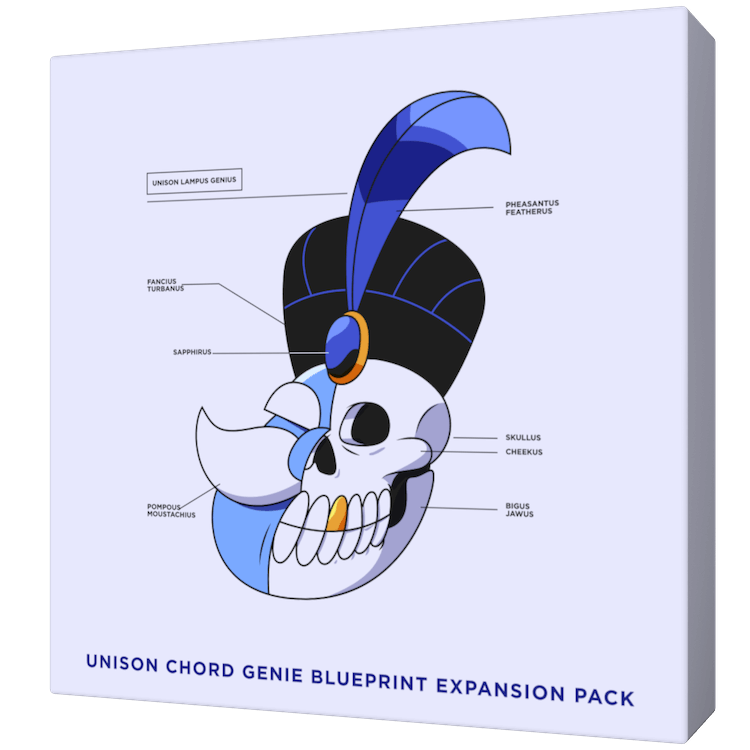
Leave a Reply
You must belogged in to post a comment.